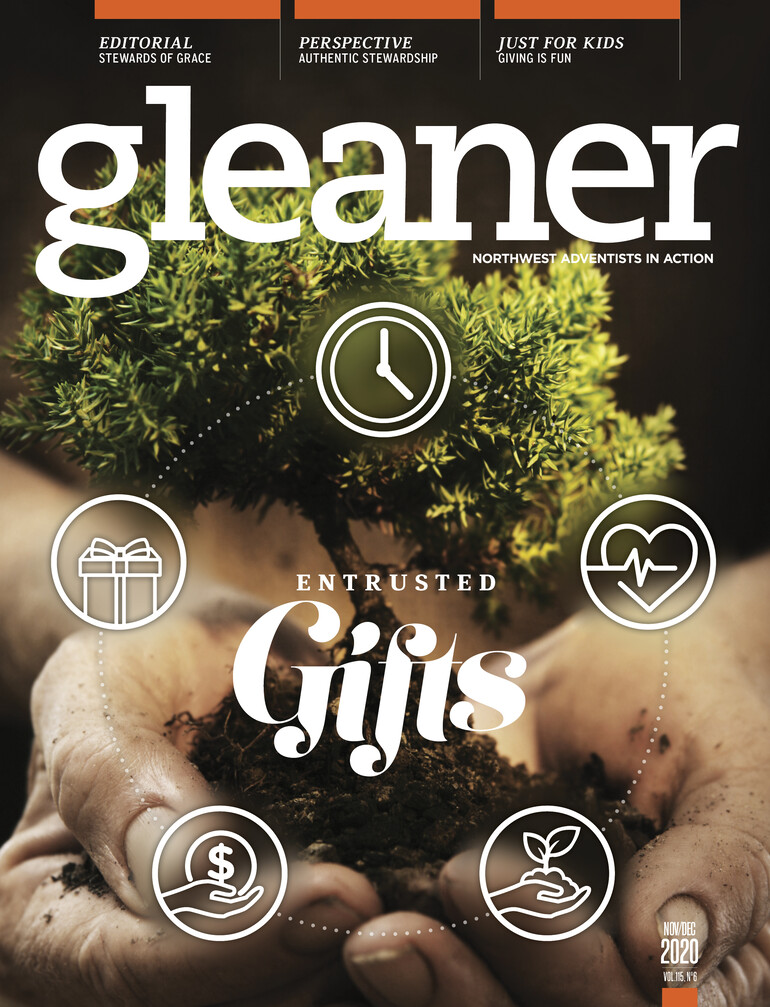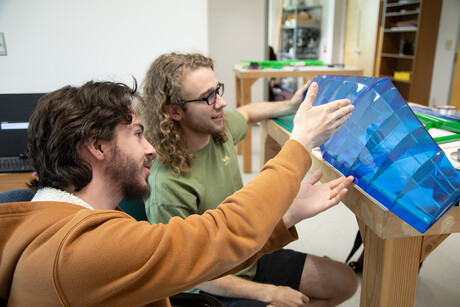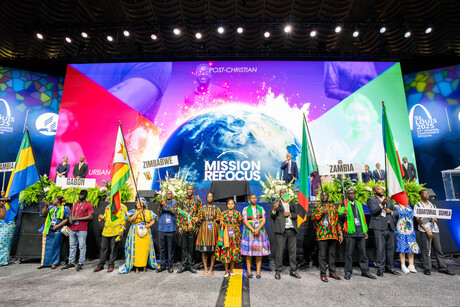I was reading John 20 recently. Some scholars say the church’s mission first appears here when Jesus gave Mary Magdalene the first commission after His resurrection. Three things stood out to me this time, three things that have become uncomfortably familiar to us during 2020. I noticed the familiar themes of sorrow and tears, fear and closed doors, and finally doubt and unbelief.
Early in the morning on the third day, Mary Magdalene was weeping in the garden outside an empty tomb (John 20:1–18). Jesus met her there, spoke to her and sent her to tell the disciples He was alive. Jesus was about to be enthroned as the Lord of the world, but the disciples were, at that time, hiding behind closed doors, afraid for their lives.
That same evening, the disciples were still hiding behind closed doors (John 20:19–23). They were naturally afraid those who put Jesus to death would soon be looking for them. In spite of the locked door, Jesus went to them. He stood with them, shared a meal and gave them a commission: “As the father has sent me, so I’m sending you.” Hope was restored in the disciples.
The next week the disciples were in the same room and still behind closed doors. Thomas, who was not there the first time Jesus appeared to the disciples, was filled with doubt, telling the others he would not believe Jesus was resurrected from the tomb unless he saw Jesus with his own eyes (John 20:24–29). Jesus revealed Himself again and invited Thomas to touch His scars and wounds. The scars and wounds proved Jesus’ identity, and Thomas moved from unbelief and doubt to a confidence and belief in Christ.
Sorrow and tears, fear and closed doors, and doubt and unbelief seem to go together, then and now. These three things sum up so much of what we are experiencing in America today. With more than 225,000 coronavirus deaths in the United States alone, sorrow and tears are plentiful. We are also living behind closed doors, fearful of crowds, not knowing who might be carrying a very infectious and deadly virus. Our country has been in various degrees of lockdown — closed businesses and orders to stay home — that has created economic and personal financial fears. Finally, there is unbelief that this is actually happening and a nagging doubt. People are asking, “What is this all about and when will it all be over? What does faith and hope look like now? Where is God in a pandemic?”
I’m encouraged by how Jesus met His disciples in that upper room. He commissioned His tearful, fearful and doubting disciples to minister to the world. “As the father has sent me, so I’m sending you.” Jesus came into the world to save it by revealing the truth about God. He came to heal the sick, to give bread to the hungry, sight to the blind and life to the dead. As Jesus revealed God’s love to the world, we are called to reveal Jesus’ love to the world, in whatever circumstances we find ourselves in.
The disciples preached the truth about God, but what really got people’s attention was how they lived out that truth. When faced with a plague, the pagan families and communities would abandon the sick out of fear of dying from the disease. However, the early Christians would work together to care for and nurse back to health, if possible, the sick and dying. Many lost their own lives. Yet, they mostly remained cheerful in the face of these challenges. People noticed the self-sacrifice and wondered why these Christians were so different from themselves.
Christians were the ones who built hospitals, orphanages and hospices, as well as educational institutions. They have gone out from locked doors and faced the fear — visiting the prisoners, caring for the wounded, welcoming strangers, feeding the hungry, and nursing the sick. In the Black Death and bubonic plague, in war and peace, and in the slums of the city, Christians have worked hard in the name of Jesus. Clergy and laity have ministered side by side, at considerable and often fatal risk to themselves. They bring hope to a hopeless world.
What should our response be to the sorrow and tears, fear and closed doors, and doubt and unbelief we see all around us today? The mission of the North Pacific Union is to share the distinct, Christ-centered Seventh-day Adventist message of hope and wholeness in the Pacific Northwest and the world. Jesus' message to us is, “As the Father has sent Me, so I am sending you.”
God is inviting us to be stewards of His grace. Stewards share what they have received. They do not hide behind closed doors out of fear. Since the foundation of the Seventh-day Adventist Church, we have gone forth to care for the sick and dying, the widows and orphans, the hungry and thirsty, the poor and distressed — despite the circumstances and sometimes with great risk. We have built hospitals, orphanages and elder care facilities. Following Jesus’ example, we have been called to meet the needs of people and then point them to Jesus, who alone can meet their deepest needs.
People in the Northwest need hope in 2020. If you are asking how to be involved, rest assured the Holy Spirit will guide and direct you into a ministry, if you only ask. I’m encouraged to hear of hundreds of examples of Northwest Adventists actively involved in caring for the needs of those affected by COVID-19, as well as by wildfires, floods and social unrest.
We are invited and commissioned to be the hands and feet and face of Jesus. Are you making a difference as a steward of God’s grace today?










